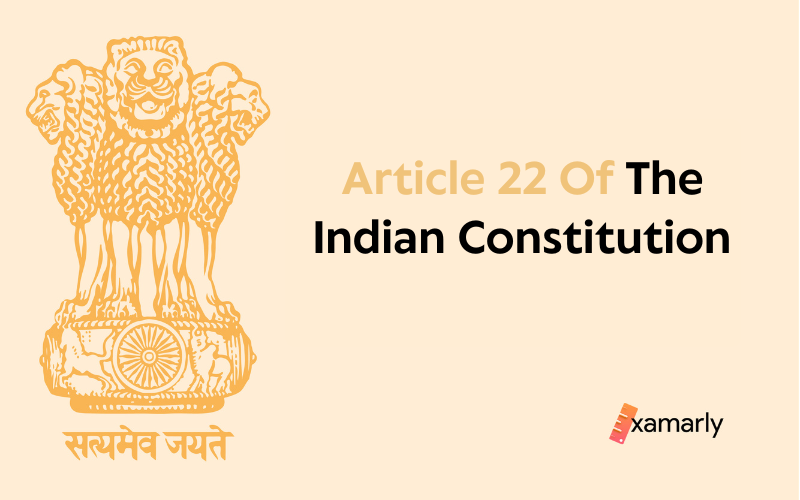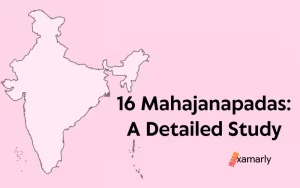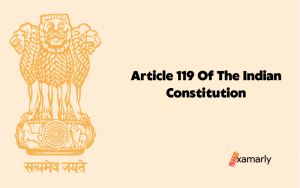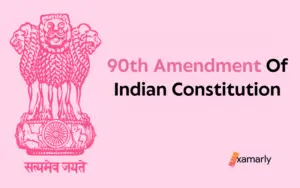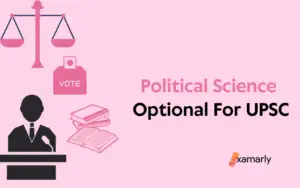Of the various Articles in the Indian Constitution, the constitution framers made Articles 21 and 22 a closely complementary nature. Article 22 of the Indian Constitution specifically deals with clauses and conditions regarding the arrest and detention of individuals. This article is covered in Part III of the Constitution of India under the Right to Freedom.
Let us look at the various components of article 22 in the Indian Constitution in detail.
- What Is Article 22 Of The Indian Constitution?
- Constitutional Provisions
- What Is Detention?
- Preventive Detention VS Punitive Detention
- Preventive Detention
- Who Has The Power?
- Significance Of Prevention Detention
- Safeguards Against Preventive Detention
- List Of Laws On Preventive Detention
- Important Judgement – Preventive Detention Provision
- Alijav vs. District Magistrate, Dhanbad
- Ankul Chandra Pradhan vs. Union Of India
- AK Gopalan Vs State Of Madras
- Criticism
- Conclusion
What Is Article 22 Of The Indian Constitution?
Every nation will have individuals who harm the well-being of the larger public or society. Keeping the public interest in mind, it becomes pertinent to restrict some people’s rights. However, this restriction cannot be random and should be on solid grounds. Article 22 clarifies these grounds.
Constitutional Provisions
Article 22(1) – For someone to be detained in custody it is pertinent that they first are informed of their grounds of arrest. They should also be provided with a chance to consult and further be provided with the basic right to be defended by a legal practitioner of their choice.
Article 22(2) – Every person arrested and kept in detention must appear in front of the nearest magistrate and this should be done within the first 24 hours of their arrest. Having said that, no one should be kept in custody for more than the specified time limit without the approval of the magistrate.
Article 22(3) – That being said, clauses (1) and (2) will not be applicable for
- (a) anyone who is an enemy alien at the time
- (b) any individual who has been detained or arrested in accordance with the law’s preventive detention provisions
Article 22(4) – Under any law allowing preventive detention, a person may not be held for more than 3 months unless
- (a) an Advisory Board including persons equally qualified to become Judges of a High Court has reported before the 3-month deadline and there is an adequate need for the decided imprisonment
- (b) it is in accordance with the prerequisites of Parliament-passed laws
Article 22(5) – When someone is held in custody due to an order issued under a law that allows for preventive detention, it is required to promptly notify him of the reasons for the order and provide him with the opportunity to object to it.
Article 22(6) – Clause (5) doesn’t require the authority issuing any such order to disclose information that it deems to be contrary to popular opinion and interest.
Article 22(7) – Parliament may prescribe by law
- (a) the circumstances and classes of cases in which detention of persons for more than 3 months of detention time while under the law requires preventive detention without trying to obtain the opinion of an Advisory Board in accordance with the provisions of clause (4) sub-clause (a)
- (b) the maximum period of detention under any law providing for preventive detention in any class or classes of cases
- (c) the process that an Advisory Board must use when conducting an investigation under clause (4) subclause (a)
What Is Detention?
During the period of India’s independence, provisions of detention were made in the constitution to protect the citizen against arrest and detention without trial. This is the Preventive Detention Act. It was enacted in 1950. But what is the experience of detention? Detention simply means that someone has been arrested or taken into custody.
Also Read: Visit the linked article from the table given below for effective preparations UPSC IAS exam.
Preventive Detention VS Punitive Detention
Basically, there are two forms of detention – punitive and preventive detention.
- Punitive detention happens to a person without trial. That is, it is used to punish after a court trial and conviction based on any committed offence.
- Preventive detention occurs without a trial. It is the detention of a person who hasn’t yet committed a crime but is thought to pose a threat to law and order by the authorities.
Preventive Detention
Preventive detention is an action taken on the basis of suspicion that the person concerned has committed some wrongdoing. So, it is the detention of suspects. This preventative detention is also known as administrative detention since it is overseen by the executive and decision-making power is with administrative or management bodies.
Who Has The Power?
Preventive detention laws are used to prevent a person from engaging in an activity that is prejudicial to the state or to its citizens. There are a few safeguards in the constitution that prevent reckless use of this power. The power to pass Preventive Detention rulings in India stems from the Constitution, which empowers the Parliament to enact such rulings for grounds specific to India’s defence, foreign affairs, or security. Parliament has sole legislative authority. In cases involving a state’s security, the upkeep of law and order, or the maintenance of supplies and services vital to the community, the Union and the states possess concurrent legislative authority. This entails confinement without a criminal trial.
Significance Of Prevention Detention
- Delegates to the Parliament the right to enact such legislation for reasons related to India’s foreign affairs, defence or security. Parliament has sole legislative authority.
- Gives Union and State powers related to a State’s security, the upkeep of law and order, or the maintenance of supplies and services essential to the community
Safeguards Against Preventive Detention
- A person may be placed in preventive custody for an original period of detention of three months. If the period exceeds three months, the case must be referred to an Advisory Board comprised of people qualified for appointment as High Court judges. It is implied that the detention period may be prolonged for more than 3 months only with the approval of the Advisory Board.
- The grounds of detention should be known to the detainee as they have the freedom to know the reasons or grounds of detention. However, if it is in the public interest, the state may refuse to reveal the reasons for the same. Needless to say, the authority granted to the state allows for arbitrary detentions on the part of the authorities.
- The authorities holding the detainee must provide the detainee with early opportunities to make representation against the detention.
List Of Laws On Preventive Detention
- Preventive Detention Act, 1950 (Expired in 1969)
- Maintenance of Internal Security Act (MISA), 1971 (Repealed in 1978)
- Conservation of Foreign Exchange and Prevention of Smuggling Activities Act (COFEPOSA), 1974
- National Security Act (NASA), 1980
- Prevention of Black-marketing and Maintenance of Supplies of Essential Commodities Act (PBMSECA), 1980
- Terrorist and Disruptive Activities (Prevention) Act (TADA), 1985 (Repealed in 1995)
- Prevention of Illicit Traffic in Narcotic Drugs and Psychotropic Substances Act (PITNDPSA), 1988
- Prevention of Terrorism Act (POTA), 2002. Repealed in 2004
Important Judgement – Preventive Detention Provision
Alijav vs. District Magistrate, Dhanbad
As per the Supreme Court ruling, unlike criminal proceedings, preventive detention need not have punishing a person for an offence committed by him.
Ankul Chandra Pradhan vs. Union Of India
According to the Court, the objective of preventive detention is not ideally the infliction of punishment. It is ultimately a measure to ensure that the detainee does not do anything that would jeopardise the security of the state.
AK Gopalan Vs State Of Madras
The Supreme Court upheld the Preventive Detention Act’s constitutionality. In addition, the Court ruled that Article 22 contains extensive procedural safeguards for preventive detention. Therefore, the Court determined that the disputed act did not infringe the fundamental rights since it followed all of the constitutional protections highlighted in Article 22 (5).
Criticism
- Lack of Clarity: Police judgments about whether someone is a threat are not examined by legal experts or put to the test in court by compelling evidence.
- Human Rights Violations: There is often no trial (up to 3 months), no periodic monitoring, and also no legal representation for the individual who is imprisoned.
- Abuse: There are no procedural safeguards in place to protect detainees from torture and discriminatory treatment, as well as to stop authorities from using preventative detention for subversive objectives.
- Oppression: Preventative detention has been applied improperly due to insufficient protections, particularly against Dalits and other minorities.
Conclusion
Article 22 of the Union of India is rather controversial and has had several debates associated with it. These constitutional decisions and discussions are what every person residing in our country must know. Merely on a factual basis, it is a law that acts as protection against arrest or protection for persons undergoing arbitrary arrest at the hands of authority. It also deals with, at the same time, the protection of life from potential threats.
This article is crucial to the understanding of the freedom of speech and personal liberty of a person and their deprivation of life in a democratic country. Hence, it is a must-know for all UPSC aspirants. If you are not aware of this rule of law, then do learn it at the earliest opportunity.


